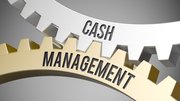Article
Look before you deploy: State regulations may surprise you
Don't let state surcharge legislation and ATM regulations put a damper on your deployment plans. By Kevin Gibson, contributing writer
March 11, 2002
In West Virginia, out-of-state breweries, in order to sell their beer to distributors, must pay a $1,500 fee to the state's alcoholic beverage regulatory commission. That's chump change for Anheuser-Busch, but if you're a fledgling brewer in Ohio looking to spread your product to an adjacent state--well, that fee can look like Mount Everest.
Often, it's the same story in the ATM business. Be aware before you place that order for 1,000 ATMs, or you may find yourself holding the bag. Or the bottle, as it were.
ATM ownership--even the type of account from which transaction are to be made- may vary from state-to-state, making it not only advisable but imperative for the potential ATM owner to be fully informed of federal and also state laws that affect potential sites.
Holli Hart Targan, a partner in the law firm of Jaffe, Raitt, Heuer & Weiss in Detroit, specializes in electronic banking, merchant acquiring and retail banking issues. According to Targan, the ATM climate is always changing, both on the federal and state levels, making it essential for any potential ATM owner--bank or private--to be up-to-date on regulations or changes in regulations before proceeding with ATM investments.
In some states, regulations differ based on whether you are a federally-chartered financial institution, a state-chartered financial institution or a non-bank ATM owner, she said.
The bottom line: Be informed.
Do you know what you're doing?
"It's not a problem if you're operating from a position of knowledge," Targan said. "It doesn't have to be a road block . . . (but) it's absolutely critical for someone in this industry to consult with someone who knows what they're talking about."
As for ATM investors who don't follow this advice, "eventually they will get dinged. I've seen it happen; it's not a position anyone needs to be in if they do their research or talk to someone."
Targan wrote an article for a trade publication called Transaction Trends in which she outlined some of the obstacles that may face ATM operators in various states.
First, Targan advises, make sure you are authorized to place ATMs in the state where you hope to do business. She says in many cases one set of rules applies to federally-chartered financial institutions and another to state-chartered institutions. And often there is a third set of rules for non-bank ATM owners.
Federal regulatory agencies such as the National Credit Union Administration, the Comptroller of the Currency and the Office of Thrift Supervision will tell you that financial institutions under their regulations may establish ATMs anywhere they please.
But state laws and regulating agencies sometimes say otherwise, requiring that the institution be headquartered in the state or at least in some way associated with a local financial institution, Targan says.
And while a state-chartered institution can generally always place ATMs within its home state, the boundary lines blur when those institutions try to spread to another state. A potential investor should study laws in both states before moving forward.
Banks vs. non-banks
Targan points out that laws can get further complicated for ATM owners that are not linked to financial institutions. Often, she said, there is a whole new set of regulations for those owners, but some states simply interpret banking laws as applying to non-bank ATMs. Then there are the exceptions. Ohio, for example, places non-bank ATM owners under state money transmitter laws and requires them to be licensed under those guidelines.
Targan said there is also the matter of surcharge laws. Federal and state laws on this subject often differ, and common law, or regulations that arise from court cases, must be examined before moving forward into surcharge territory.
Targan said at least 21 states have surcharge laws and a few even prohibit the practice outright. Obviously, it's tough for a private owner to make money in the ATM business when surcharges are not an option.
Massachusetts, for instance, is a state that recently has banned the surcharge, according to Washington, D.C., attorney David Bartone. He places that state, along with West Virginia, as one of the two toughest in which to crack in the ATM business.
"I think all of them are dabbling with the idea," he said of the no-surcharge law, which some government representatives believe works against consumers.
"It depends on the legislators (in each state)," he said. "Many argue it's a convenience fee and it's not anti-consumer because it does give considerable opportunity to access cash anywhere. That's good for commerce."
In other words, keeping tabs on the current sentiment in state government is a good idea, because today's surcharge could be tomorrow's anti-consumer infraction. Iowa and Connecticut have prohibited ATM owners from surcharging customers, but those regulations have been challenged in the courts, and outcomes are pending.
In 1998, legislation was introduced in the U.S. Senate and many states that would ban surcharges. "If that is prohibited that potentially might put (some non-bank ATM owners) out of business," Targan said.
"I think personally the threat of that is a lot less now than it was even six months ago. There are places where surcharging is prohibited but there are challenges to those rulings. And there are ways, if (ATM owners) are savvy enough, to get around it--ways of setting up their business so that it doesn't have to be an obstacle necessarily."
There also are laws in at least two states that limit the ability of an ATM owner to charge a fee to a government benefit recipient who is withdrawing benefit funds from an ATM. Security laws also must be taken into consideration when placing an ATM, and in many states ATMs fall under disability, civil rights and/or building code laws, Targan said.
And in at least nine states, legislation was introduced this year that would cap surcharge fees. Those may not be a problem, however, because competition would probably keep surcharges down anyway.
Still, it adds to the confusion, and it could be years before the whole thing gets sorted out, according to Targan.
For instance, even if the combination of regulations doesn't completely prohibit a certain ATM owner from placing machines in a certain state, the cost of meeting those regulations might make it financially prohibitive.
And the growth of the ATM business actually could be an obstacle, Targan believes, because, "I think more and more regulators will begin to realize that more non-bank ATM owners are out there, and they will feel it is an industry that needs to be regulated. Any time money is being transferred, it is going to raise the interest of a regulator. That really is what's going on here."
Bartone said the emergence of ATM networks and investment groups require that any investor be cautious. "There are so many parties in the chain that you have to analyze each perspective," he said. "There are going to be a lot of people with various interests. There's an infinite number of fights to get into in this industry."
His advice: "You want to be careful and have an attorney review your contract. You have to identify what your hope is to gain from the transaction. Have the lawyer evaluate that against what's in the contract. A lot of times people hear what they want to hear and later are disappointed."
That's not unlike ordering a Sam Adams and finding out the only thing available, thanks to government regulations, is Keystone.
>Sources:
• Holli Hart Targan, Attorney, can be reached at (313) 961-8380.
• Attorney David Bartone is reachable at (202) 824-8173.













